Emergency Smile’s ongoing work in Lesvos
Emergency Smile has been active on Lesvos since 2018, initially working inside the Moria displacement camp. Following the destruction of Moria Camp by fire in 2020, the team continued its efforts in the new camp that was established nearby. Over time, access to the camp became increasingly restricted. Since October 2022, the focus has shifted to the Parea Community Centre—an open, welcoming space accessible to residents of the camp and other displaced people on the island.
This shift enabled deeper, more consistent engagement. Regular visits to Parea have helped establish Emergency Smile as a trusted and familiar presence. Local organisations recognise and collaborate closely with the team, while children and families benefit from this continuity. A steady presence allows for artistic interventions that are more thoughtfully adapted to the changing needs of the community, creating moments of safety, connection, and joy. ‘When we’re in the same place repeatedly, we can build a stronger connection with the people...’ said Craig Russell, Head of Mission, 'The team get to know the context better, know the partners better. All this knowledge helps our work, as we forge stronger connections and partnerships.’
Spring 2025 mission
The Spring 2025 mission brought together Erika from Hungary and Aleš from the Czech Republic—both returning clowns—alongside Aisté from Lithuania on her first deployment, and Craig Russell as Head of Mission. Over four weeks, the team carried out a wide range of activities across Lesvos.
At the Parea Community Centre, now equipped with a dedicated child-friendly space where parents can leave their children under professional supervision, the team performed improvisational acts in a large open area of approximately 6,000 m². With more children attending thanks to this safe setting, engagement focused on spontaneous, interactive play using humour, movement, and imagination.
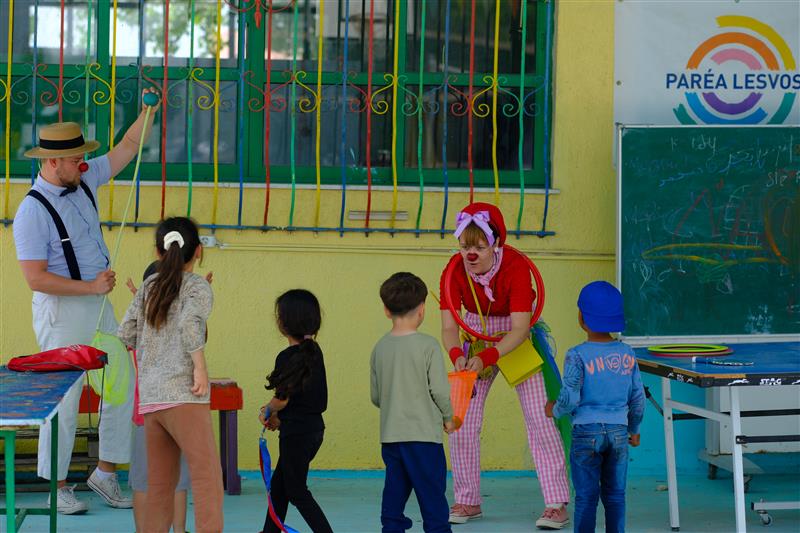 Enlarge photo
Enlarge photoThe team also made regular visits to the Iliaktida shelters for unaccompanied minors—four for teenage boys and one for younger children and girls—as well as to the Ariadni Centre, a warm, stable environment for children aged 4 to 10. There, the clowns brought performance and play every Thursday afternoon, offering brief but meaningful moments of escape from the challenges of daily life.
‘When people feel safe with us, they start to laugh, and it creates such a warm feeling.’ said Aisté ‘We reached a lot of people—a lot of eyes, and a lot of smiles.’
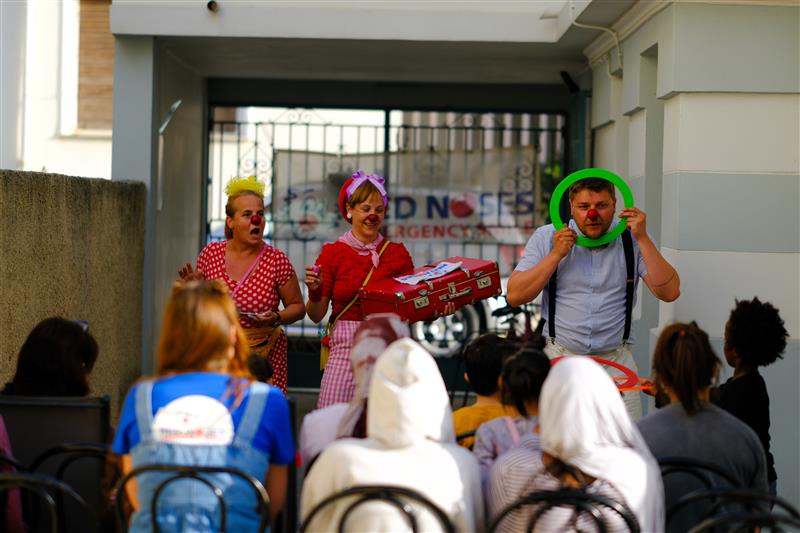 Enlarge photo
Enlarge photoIn the IOM Safe Area—where newly arrived unaccompanied minors await placement in shelters—the team provided psychosocial support through playful, light-hearted interactions designed to ease the stress of transition. At a nearby centre for people with disabilities, clowns shared personalised moments through music, parachute games, and name songs. Local staff occasionally joined with live music, creating beautiful, shared experiences.
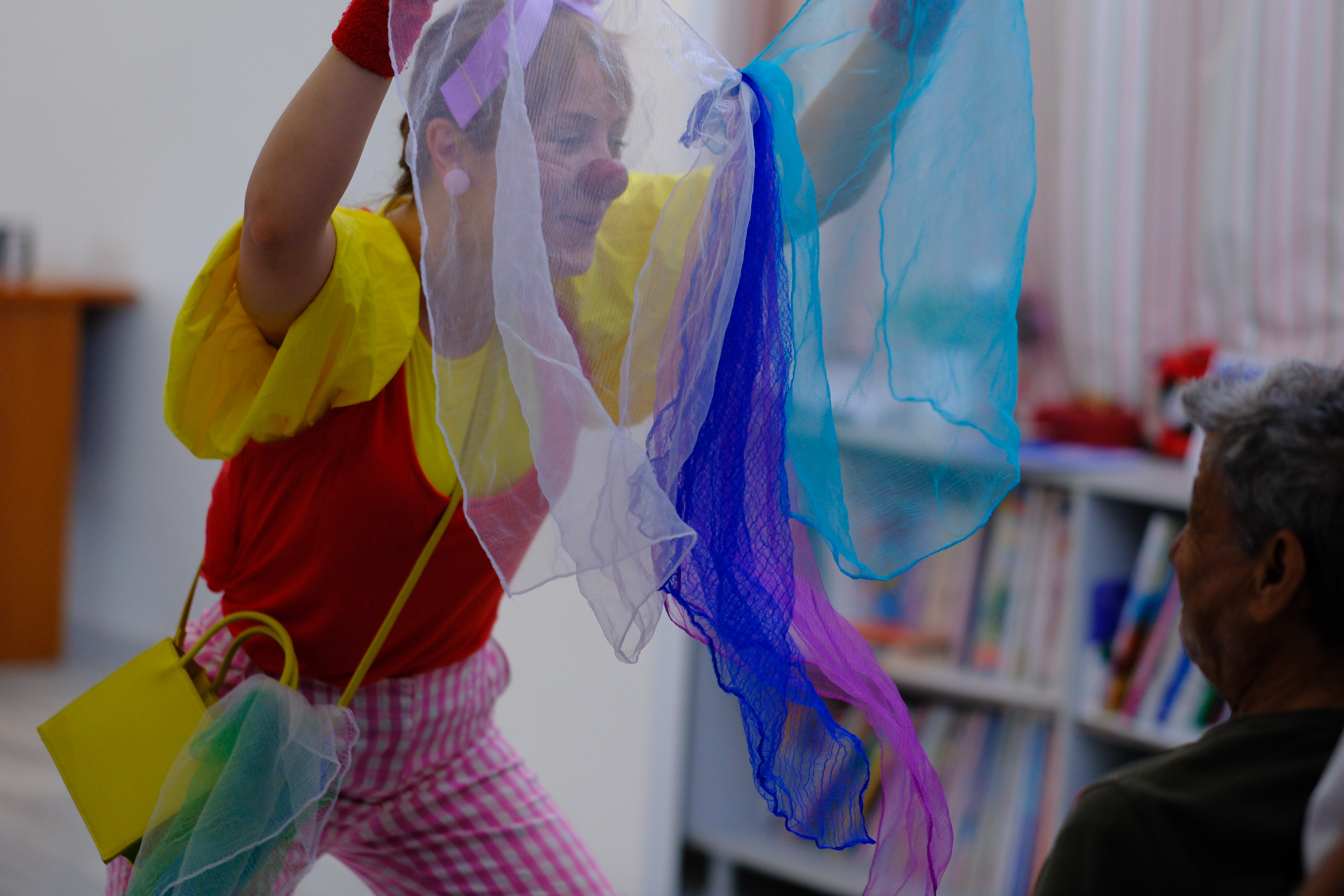 Enlarge photo
Enlarge photoCollaboration with Because We Carry included entertaining children during aid distributions and providing childcare during women-only dance nights—moments where mothers could relax, move freely, and reconnect with themselves in a safe, supportive space.
‘At the women’s dance party, men are not allowed, so the women can remove their hijabs. Children run around everywhere—Erika and I took care of them while the mothers danced,’ remembered Aisté. ‘During our last visit, since there weren’t many children, we were able to dance together. One of the women gave me a warm hug and kissed me on the cheeks at the end. I could see in her face how much that moment of dancing meant to her—a small break from everything, and a bit of relief she truly needed.’
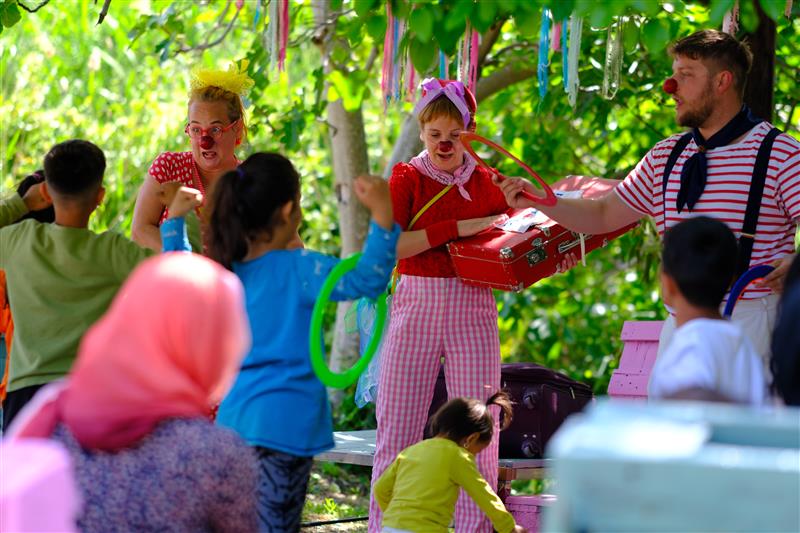 Enlarge photo
Enlarge photoIn addition to the direct work with children and families, three Humour Relief workshops were delivered for humanitarian workers. A joint session with Yoga and Sports for Refugees built team cohesion through laughter and play. At Boat Refugee Foundation, workshops focused on nonverbal communication techniques useful for medical professionals working across language barriers. Participants were encouraged to use every day clinical items in creative ways, incorporating storytelling tools like bubble blowing, clown noses, and ‘magic potion’ narratives. This session built on a previous workshop held in October. A third workshop with Parea Europe Cares centred on emotional resilience and team building for the team members of Europe Cares.
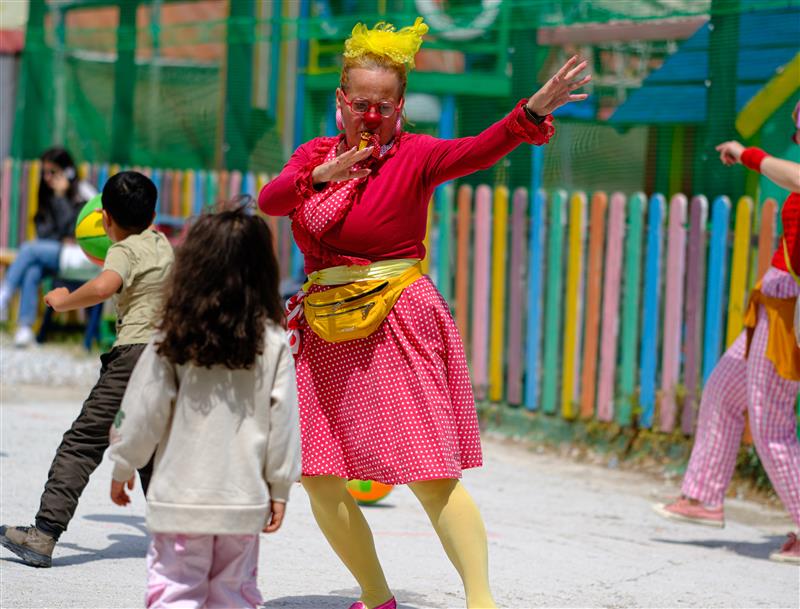 Enlarge photo
Enlarge photo